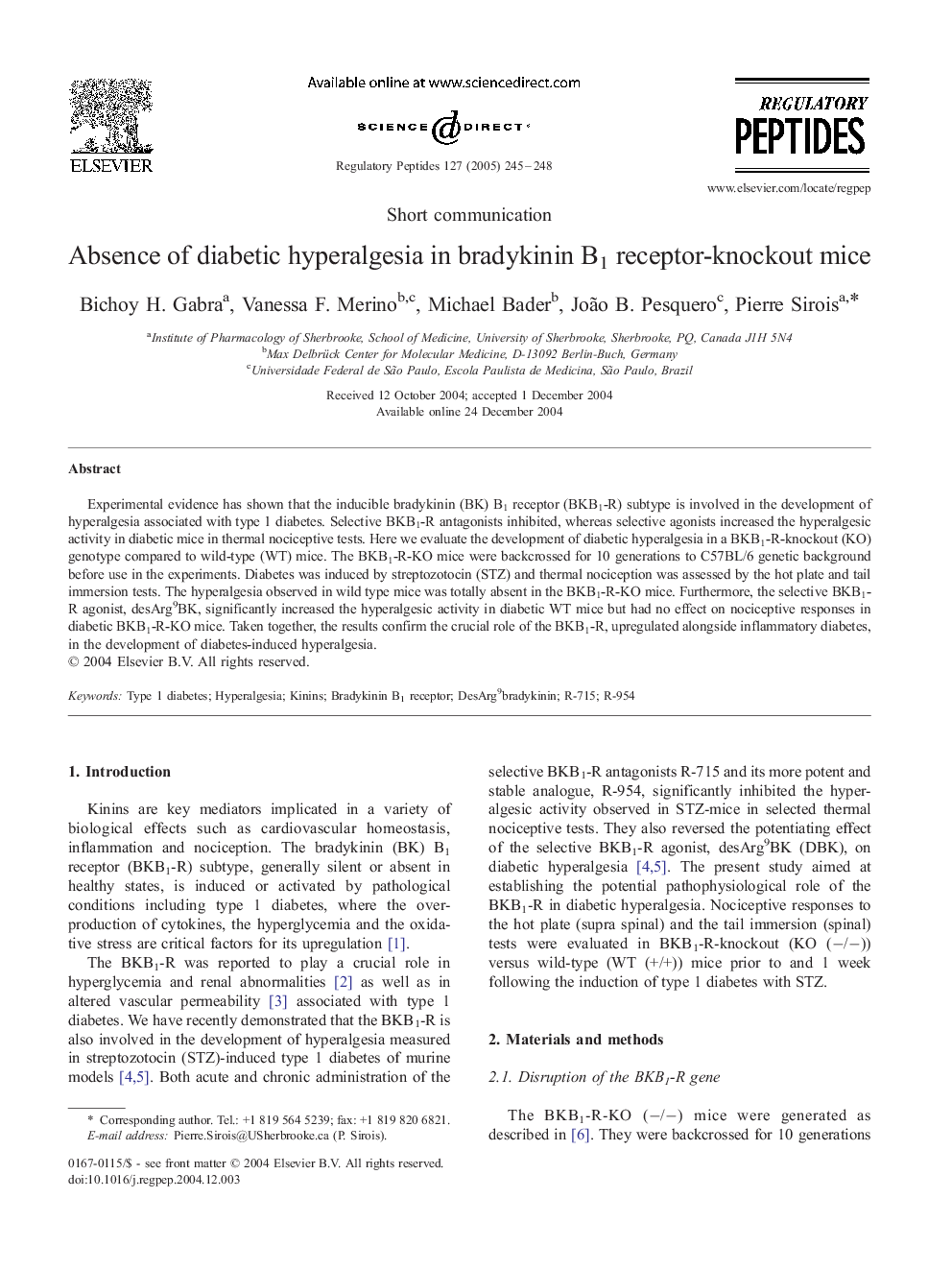| Article ID | Journal | Published Year | Pages | File Type |
|---|---|---|---|---|
| 9894465 | Regulatory Peptides | 2005 | 4 Pages |
Abstract
Experimental evidence has shown that the inducible bradykinin (BK) B1 receptor (BKB1-R) subtype is involved in the development of hyperalgesia associated with type 1 diabetes. Selective BKB1-R antagonists inhibited, whereas selective agonists increased the hyperalgesic activity in diabetic mice in thermal nociceptive tests. Here we evaluate the development of diabetic hyperalgesia in a BKB1-R-knockout (KO) genotype compared to wild-type (WT) mice. The BKB1-R-KO mice were backcrossed for 10 generations to C57BL/6 genetic background before use in the experiments. Diabetes was induced by streptozotocin (STZ) and thermal nociception was assessed by the hot plate and tail immersion tests. The hyperalgesia observed in wild type mice was totally absent in the BKB1-R-KO mice. Furthermore, the selective BKB1-R agonist, desArg9BK, significantly increased the hyperalgesic activity in diabetic WT mice but had no effect on nociceptive responses in diabetic BKB1-R-KO mice. Taken together, the results confirm the crucial role of the BKB1-R, upregulated alongside inflammatory diabetes, in the development of diabetes-induced hyperalgesia.
Related Topics
Life Sciences
Biochemistry, Genetics and Molecular Biology
Biochemistry
Authors
Bichoy H. Gabra, Vanessa F. Merino, Michael Bader, João B. Pesquero, Pierre Sirois,
